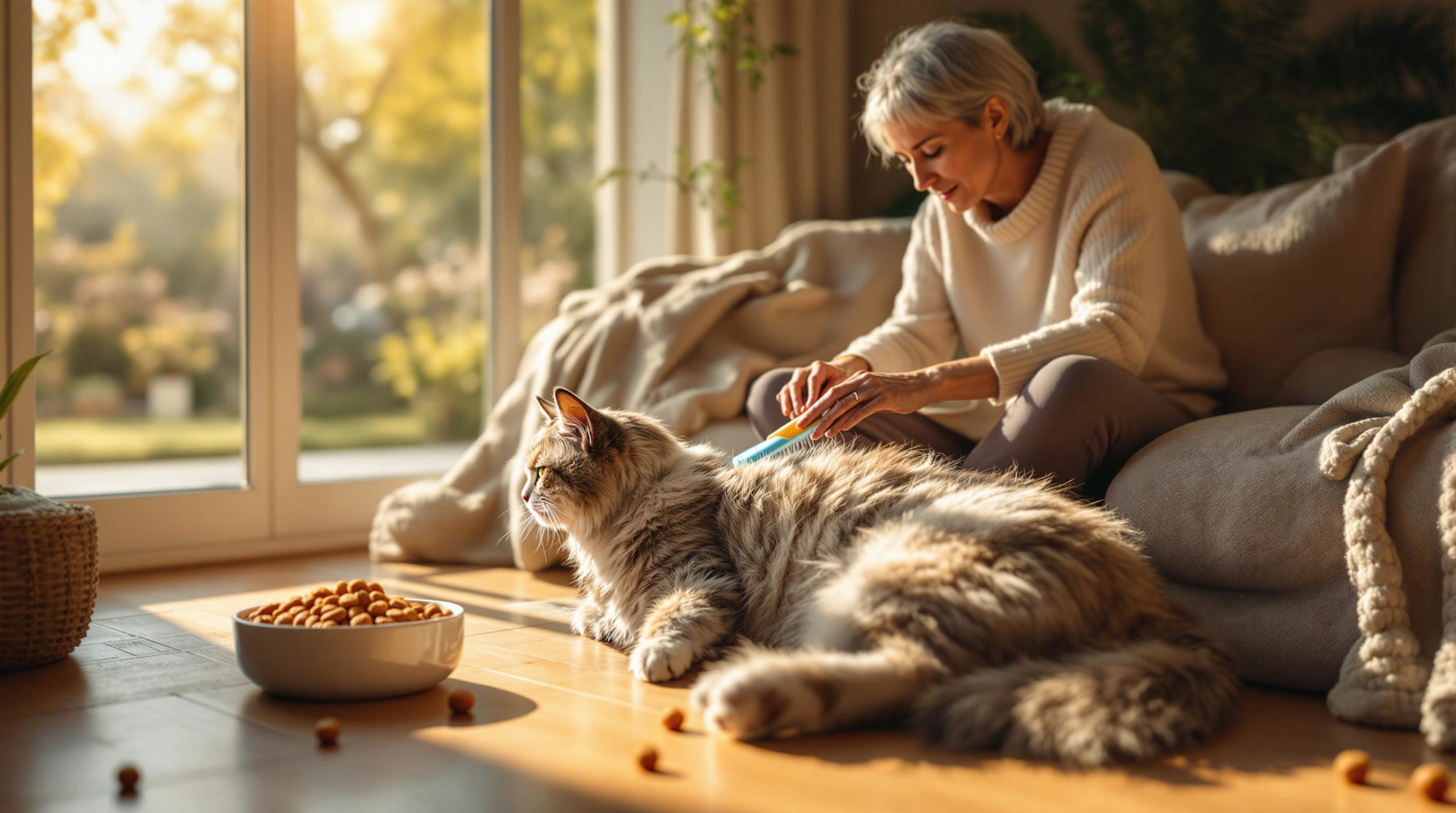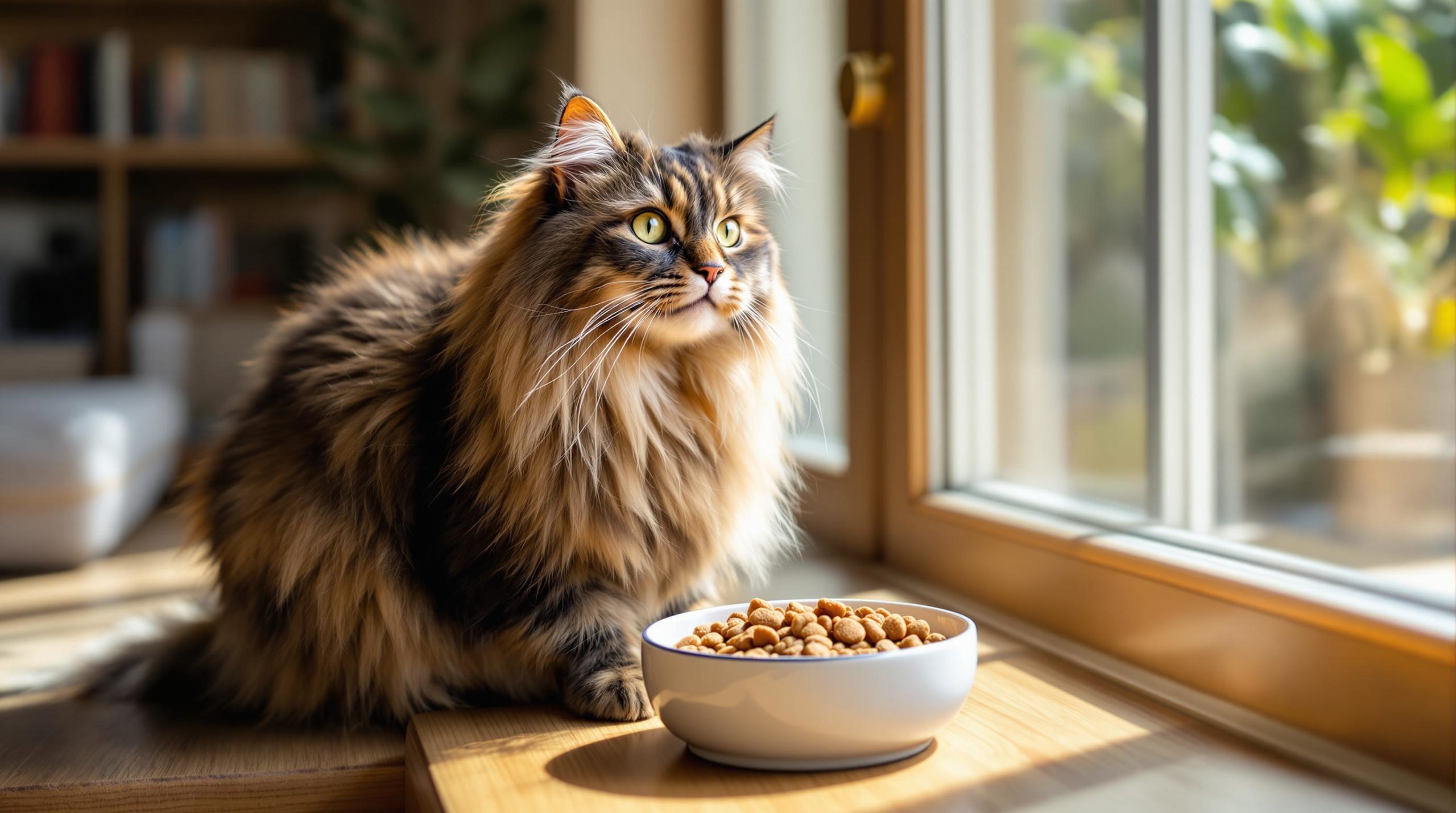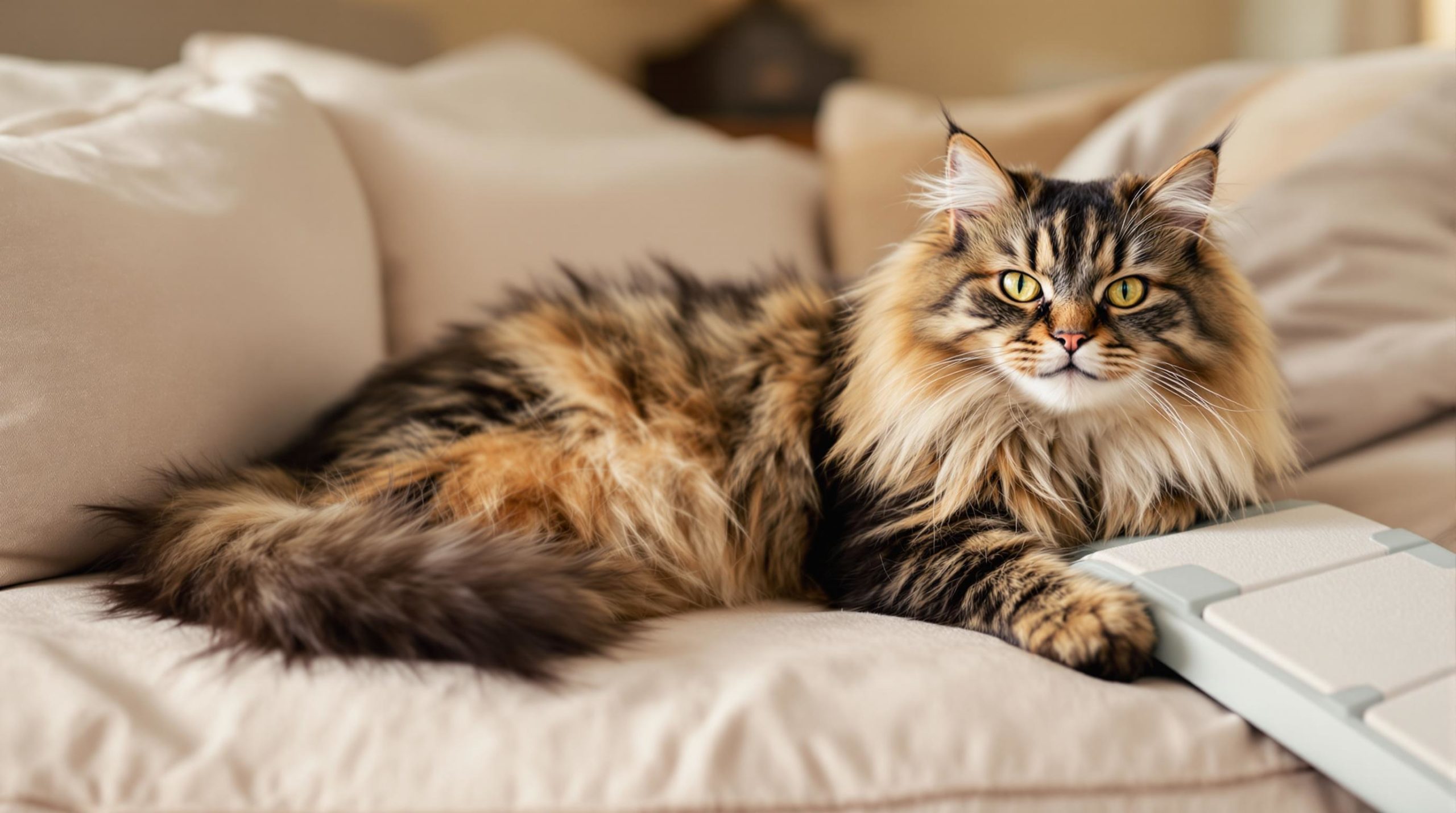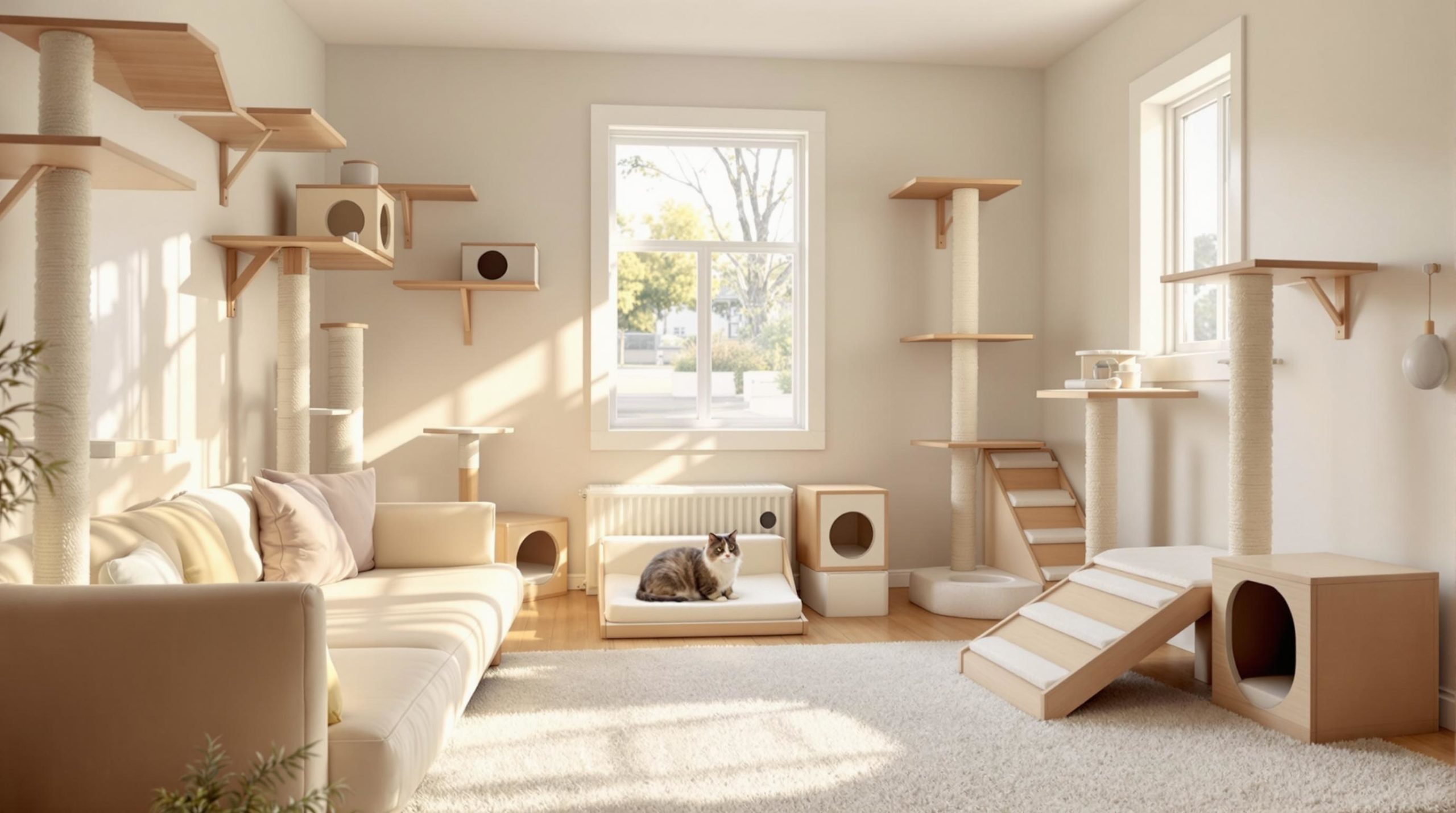Caring for your senior maine coon: essential tips for healthy aging

The aging journey of a Maine Coon is as majestic as the breed itself, with their large size and luxurious fur making every stage of life memorable. When these gentle giants step into their senior years, their care requirements evolve significantly. Understanding these changes and responding appropriately can help maintain their health, vitality, and happiness throughout their golden years. Senior Maine Coons face unique challenges such as joint stiffness, declining kidney function, sensory loss, and dental issues. However, with thoughtful nutrition, environmental adjustments, and attentive health monitoring, they can thrive just as they did in their youth. Recognizing the subtle signs of aging and intervening early can not only mitigate discomfort but also extend the quality of your cat’s life.
Understanding the Changing Nutritional Needs of Senior Maine Coons for Healthy Aging
Nutrition plays a pivotal role in the health and longevity of senior Maine Coons. As cats move past middle age into the senior years—typically around 11 to 14 years—metabolic rates slow down, digestion becomes less efficient, and changes in body composition require a tailored diet. Proper nutrition supports their immune system, maintains a healthy weight, and helps prevent or manage common age-related conditions.
Key Nutritional Adjustments for Senior Maine Coons
- High-quality Protein: Maintaining muscle mass is critical, and senior cats benefit from easily digestible, high-protein diets. Proteins rich in taurine are essential for cardiac and eye health.
- Moderated Fat Content: As metabolism slows, calorie needs often decrease. Balanced fat levels help avoid obesity, a major risk factor for joint stress and diabetes.
- Fiber for Digestive Health: Senior cats may struggle with constipation and slower digestion. Fiber supports digestive motility and gut health.
- Added Vitamins and Minerals: Antioxidants such as vitamins E and C may support the immune response, while minerals tailored for kidney health help accommodate declining renal function.
- Hydration Support: Aging cats often drink less and can become prone to dehydration. Including wet food or supplementing water intake is vital.
These nutritional considerations are reflected in premium senior cat foods such as Royal Canin, Hill’s Science Diet, Purina Pro Plan, and natural ingredient brands like Orijen and Nature’s Logic. Selecting the right formula depends on your cat’s specific health status and preferences, but consistently providing a diet tailored to senior needs can improve vitality and comfort.
Practical Tips for Feeding Your Senior Maine Coon
- Gradually transition diets: Any change to your cat’s food should be gradual over 7-10 days to avoid digestive upset.
- Provide multiple small meals: Smaller meals more frequently can aid digestion and manage weight better.
- Encourage hydration: Use water fountains, offer wet meals like Tiki Cat, and consider adding water or broth to dry food.
- Monitor weight carefully: Seniors may lose weight unnoticeably; regular weigh-ins and veterinary evaluations are essential.
- Consider supplements: Products containing glucosamine and chondroitin, as found in brands like Merrick, can support joint health.
In addition to diet, observe your Maine Coon’s appetite and food preferences closely. A sudden refusal to eat can signal dental pain or illness. Regular dental care is a must for maintaining quality nutrition in senior cats.

| Nutrition Aspect | Importance for Senior Maine Coons | Example Brands/Formulas |
|---|---|---|
| High-Quality Protein | Supports muscle maintenance & overall vitality | Orijen Senior Cat, Wellness CORE Grain-Free |
| Moderate Fat Content | Prevents obesity, supports energy balance | Hill’s Science Diet Adult 11+ Healthy Weight |
| Added Fiber | Improves digestion & prevents constipation | Purina Pro Plan Focus Adult Sensitive Skin & Stomach |
| Vitamins & Antioxidants | Boost immune system & cognitive health | Royal Canin Aging +12, Nutro Wholesome Essentials Senior |
| Hydration | Prevents dehydration, supports kidney health | Tiki Cat, Merrick Grain-Free Wet Food |
For more insight on Maine Coon development and wellbeing, explore the Maine Coon growth chart and nutritional tips designed specifically for this remarkable breed.
Monitoring and Managing Common Health Concerns in Senior Maine Coons
With advancing age, Maine Coons become susceptible to particular health issues that require vigilance and timely intervention. Senior wellness programs emphasize regular veterinary evaluations to catch diseases early and mitigate suffering.
Common Age-Related Health Issues in Maine Coons
- Arthritis: Joint inflammation leads to stiffness and reduced mobility. Subtle signs like reluctance to jump or climb stairs are common.
- Kidney Disease: Chronic kidney disease develops insidiously, often starting with increased thirst and urination.
- Dental Disease: Gingivitis and tooth loss cause pain and impair eating, affecting overall health.
- Vision and Hearing Decline: Cataracts or age-related hearing loss can alter behavior and reduce interaction.
- Cognitive Dysfunction: Similar to dementia in humans, causing confusion, disorientation, and behavioral changes.
Regular check-ups every six months or more frequently depending on health status can help detect these ailments early. Diagnostic blood work, urinalysis, and dental exams provide critical insights into organ function and infection control.
Strategies to Support Health and Comfort
- Manage Arthritis: Provide chondroitin and glucosamine supplements, offer ramps and low-sided litter boxes for easier access, and pets’ favorite toys for gentle exercise.
- Address Kidney Issues: Work closely with your vet to tailor diet, hydration strategies, and medications to slow progression.
- Dental Care Routine: Regular tooth brushing with cat-friendly toothpaste and professional cleanings under sedation as needed.
- Enhance Environment: Soft bedding, controlled temperatures, and minimizing stairs help reduce stress on aging bodies.
- Keep the Mind Active: Use interactive toys and gentle play to engage your cat mentally and physically, delaying cognitive decline.
Being attentive to these health markers ensures your Maine Coon’s golden years are comfortable and fulfilled. Specific details about managing health problems unique to Maine Coons can be found in dedicated resources such as Maine Coon health problems.

| Health Issue | Common Signs | Recommended Actions |
|---|---|---|
| Arthritis | Stiffness, reluctance to jump or climb | Supplements, environmental modifications, gentle exercise |
| Kidney Disease | Increased thirst, urination, weight loss | Dietary management, vet monitoring, hydration support |
| Dental Disease | Bad breath, difficulty eating, pawing at mouth | Tooth brushing, vet cleanings, pain management |
| Cognitive Decline | Confusion, altered behavior, excessive vocalizing | Enrichment activities, consistent routines, vet consultation |
| Vision/Hearing Loss | Disorientation, startled reactions | Safe environment, avoiding sudden approaches |
Enhancing Mobility and Comfort: Environmental Adaptations for Aging Maine Coons
The physical challenges of aging can impact a Maine Coon’s day-to-day happiness. Given their size, these cats benefit immensely from a thoughtfully adapted living space that addresses mobility hurdles and sensory changes.
Practical Environmental Changes
- Soft, Supportive Bedding: Cushioned resting spots reduce pressure on aching joints and provide warmth. Heated pads can offer relief in colder climates.
- Easy Access to Essentials: Litter boxes with low sides, raised food and water dishes, and ramps to favorite perches or furniture support independence.
- Safe Climbing Options: Provide ramps or gentle stairs next to furniture to minimize jumping stress.
- Consistent Space Arrangement: Avoid sudden changes in furniture layout to prevent confusion in cats with declining vision or cognition.
- Quiet, Cozy Spots: Ensure spaces free from loud noises or high traffic to reduce anxiety.
Integrating these changes encourages natural behaviors and eases frustrations caused by physical limitations. Toys and hiding spots remain important, adapted for easier handling and interaction. For insight on the physical activity needs of Maine Coons, review specialized advice on their exercise requirements and play preferences to keep them engaged safely and happily as they age.
Supporting Mental Well-being Through Environment
Beyond physical comfort, stimulating your senior Maine Coon’s senses aids in slowing cognitive decline. Introducing interactive toys and new, gentle experiences keeps curiosity alive.
- Rotate Toys: Introducing variety prevents boredom without overwhelming.
- Interactive Play: Gentle games tailored to their reduced energy levels encourage exercise and bonding.
- Calming Scents and Sounds: Lavender or chamomile diffusers inspired for cats can provide relaxation, but monitor cats for sensitivity.
- Regular Routine: Predictability supports emotional security, especially for cats experiencing confusion.

| Environmental Aspect | Purpose | Implementation Examples |
|---|---|---|
| Soft Bedding | Joint comfort and warmth | Memory foam beds, heated cat pads |
| Easy Access | Facilitate mobility | Low-sided litter boxes, ramps, raised dishes |
| Safe Climbing | Reduce jumping strain | Furniture ramps, stepped platforms |
| Mental Engagement | Sharpen cognition and reduce anxiety | Rotating toys, interactive play, calming scents |
| Consistent Layout | Prevent confusion | Stable furniture arrangement |
The Importance of Regular Veterinary Care and Dental Maintenance for Aging Maine Coons
Routine veterinary visits become increasingly important as Maine Coons enter their advanced years. Many senior cat ailments are manageable or even reversible when caught early, and in some cases, proactive care can prevent decline.
Recommended Veterinary Check-up Schedule
- Biannual Exams: At minimum every six months, to monitor weight, blood pressure, and perform blood tests for organ function.
- Blood Work and Urinalysis: Detect early kidney disease, diabetes, and thyroid function abnormalities.
- Dental Evaluations: Assess for gingivitis, tooth decay, and oral tumors.
- Vaccination Updates: Adjusted according to immune status and lifestyle.
- Behavior and Pain Assessment: Discuss any changes that might indicate discomfort or cognitive issues.
Collaborate with your veterinarian to tailor treatments such as prescription diets from trusted brands like Hill’s Science Diet or Nutro, and medications or supplements designed to support kidney and joint health. Early identification of diseases such as hypertrophic cardiomyopathy—a condition more common in Maine Coons—can save lives. Advanced diagnostic tools available today allow increasingly proactive management.
Dental Health: A Cornerstone of Senior Cat Wellness
Dental disease can lead to systemic infections and chronic pain. Regular brushing with cat-friendly toothpaste and professional cleanings under sedation extend longevity and improve quality of life. Brands like Blue Buffalo offer dental health-focused diets that complement oral hygiene efforts.
Daily dental care at home, paired with veterinary professional assistance, prevents gingivitis progression and tooth loss prevalent in aging felines.
| Check-up Component | Purpose | Frequency |
|---|---|---|
| Physical Exam & Behavior Review | Detect early signs of pain, arthritic stiffness, cognitive changes | Every 6 months |
| Blood & Urine Tests | Monitor kidney, liver, thyroid, and blood sugar levels | Every 6 months |
| Dental Assessment | Identify gingivitis, tooth decay | Annually or as recommended |
| Vaccinations | Maintain immunity adjusted for age | Per vet guidance |
| Pain & Cognitive Assessment | Tailor care for comfort and mental health | Every visit |
Promoting Mental and Physical Stimulation: Supporting the Active Life of Aging Maine Coons
Mental engagement and physical activity not only enhance the quality of life but actively slow down the effects of senility and muscular deterioration in senior Maine Coons.
Recommended Activities for Senior Maine Coons
- Gentle Play Sessions: Short but frequent play with interactive toys is excellent for joint mobility and mental acuity. Feather wands and slow-moving laser pointers are favorites.
- Environmental Enrichment: Hiding treats or food puzzles taps into stalking instincts and provides cognitive challenges.
- Social Interaction: Calm, loving contact promotes emotional well-being and reduces anxiety common in older cats.
- Scheduled Exercise: Consistent timing helps maintain routine and physical condition.
- Safe Exploration Areas: Allow access to indoor windows or secure outdoor patios for stimulating sights and smells.
Encouraging activity suited to the Maine Coon’s size and limitations prevents muscle loss and maintains joint function. For detailed ideas about play behavior adapted to Maine Coons, visit the guide on Maine Coons’ play behavior.
Creating a balanced lifestyle with ample opportunity for movement and mental challenge combats typical senior issues like arthritis and cognitive decline.
| Activity | Benefits | Implementation Tips |
|---|---|---|
| Gentle Play | Maintains joint mobility, mental sharpness | Use feather toys, short sessions multiple times per day |
| Environmental Enrichment | Stimulates brain, reduces boredom | Food puzzles, hiding treats, new toys rotated regularly |
| Social Bonding | Improves emotional well-being | Quiet petting sessions, consistent routines |
| Scheduled Exercise | Builds habit, maintains physical health | Set daily playtimes, use ramps to facilitate movement |
| Safe Exploration | Provides novelty, sensory stimulation | Indoor window seats, secure outdoor enclosures |
FAQ: Essential Questions on Caring for Senior Maine Coons
- 1. What age is considered “senior” for a Maine Coon?
- Answer: Typically, Maine Coons aged between 11 and 14 years are classified as seniors, with 15 years and older considered geriatric.
- 2. How often should a senior Maine Coon have veterinary checkups?
- Answer: At least every six months, but more frequent visits may be recommended for cats with chronic conditions.
- 3. What are common health problems senior Maine Coons face?
- Answer: Common issues include arthritis, kidney disease, dental problems, cognitive decline, and sensory loss.
- 4. Is weight loss normal in senior Maine Coons?
- Answer: Some weight loss can be normal, but sudden or significant weight loss should prompt veterinary investigation to rule out disease.
- 5. Which cat food brands are recommended for senior Maine Coons?
- Answer: Brands like Royal Canin, Hill’s Science Diet, Purina Pro Plan, Blue Buffalo, Wellness CORE, Merrick, Tiki Cat, Nutro, Nature’s Logic, and Orijen offer excellent senior-specific formulas.